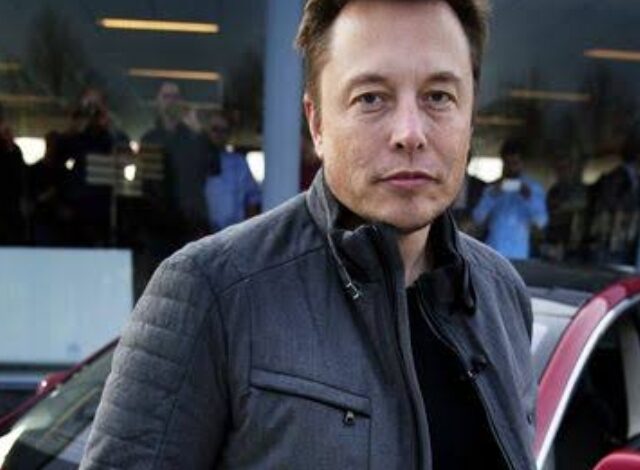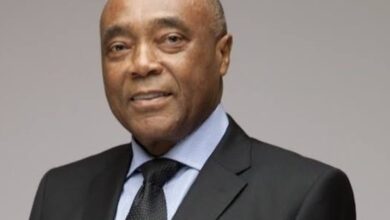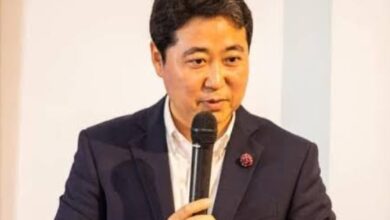Biography of Elon Musk, Relationship, Career, Net Worth, Nationality

Elon Musk is a visionary entrepreneur, inventor, and business magnate whose innovative ideas have reshaped industries and inspired global progress. Known for his ambitious goals and relentless pursuit of excellence, Musk has become a household name through his leadership in transformative companies like Tesla, SpaceX, Neuralink, and The Boring Company. His life story is one of bold dreams, groundbreaking achievements, and an unwavering commitment to advancing human potential.
Elon Musk Biography
Contents
Early Life
Birth and Family Background
Elon Reeve Musk was born on June 28, 1971, in Pretoria, South Africa. He grew up in a family that valued intellect and curiosity. His father, Errol Musk, was a South African electromechanical engineer, and his mother, Maye Musk, was a Canadian model and dietitian. Musk has two younger siblings, Kimbal and Tosca, who also pursued entrepreneurial paths. From an early age, Musk displayed a keen interest in technology and problem-solving, often teaching himself complex subjects.
Educational Background
Musk’s educational journey began in Pretoria, where he attended Waterkloof House Preparatory School and later Pretoria Boys High School. A self-taught learner, he developed a passion for computers and programming, creating his first video game, Blastar, at the age of 12, which he sold to a magazine for $500. After graduating high school in 1989, Musk moved to Canada at 17 to explore new opportunities and avoid mandatory military service in South Africa.
In Canada, Musk briefly attended Queen’s University in Ontario, starting in 1990, where he studied physics and economics. In 1992, he transferred to the University of Pennsylvania, earning two bachelor’s degrees: a Bachelor of Science in Physics from the College of Arts and Sciences and a Bachelor of Science in Economics from the Wharton School. His time at Penn sharpened his analytical skills and deepened his interest in solving large-scale problems.
In 1995, Musk enrolled in a Ph.D. program in applied physics at Stanford University but left after two days, deciding to pursue entrepreneurial ventures instead. This decision marked a pivotal moment in his journey, as he chose to focus on creating real-world impact over academic pursuits.
Entrepreneurial Beginnings
Zip2: The First Venture
In 1995, Musk co-founded Zip2, a software company that developed online city guides for newspapers. With his brother Kimbal, Musk worked tirelessly to build the company, often sleeping in the office to save money. His dedication paid off when Compaq acquired Zip2 in 1999 for $307 million, earning Musk $22 million for his share. This early success established him as a promising entrepreneur.
X.com and PayPal
In 1999, Musk founded X.com, an online financial services company aimed at simplifying digital payments. The company merged with Confinity, which operated a service called PayPal, and Musk became the CEO of the combined entity. Under his leadership, PayPal grew rapidly, revolutionizing online transactions. In 2002, eBay acquired PayPal for $1.5 billion in stock, with Musk receiving $165 million. This milestone solidified his reputation as a tech innovator.
Revolutionizing Industries
SpaceX: Pioneering Space Exploration
In 2002, Musk founded Space Exploration Technologies Corp. (SpaceX) with a mission to make space travel affordable and enable human life on Mars. SpaceX achieved historic milestones, including the first privately funded spacecraft, Dragon, to dock with the International Space Station in 2012. The company’s reusable Falcon rockets and Starship program have redefined space exploration, earning contracts with NASA and private clients. Musk’s vision of colonizing Mars continues to drive SpaceX’s ambitious goals.
Tesla: Accelerating Sustainable Energy
In 2004, Musk joined Tesla Motors (now Tesla, Inc.) as chairman and lead investor, later becoming CEO in 2008. Under his leadership, Tesla transformed the automotive industry by producing high-performance electric vehicles like the Model S, Model 3, Model X, and Model Y. Tesla’s focus on sustainability, autonomous driving, and energy storage through products like the Powerwall has made it a global leader in clean energy. Musk’s bold strategies, such as open-sourcing Tesla’s patents, have accelerated the adoption of electric vehicles worldwide.
SolarCity and Renewable Energy
In 2006, Musk co-founded SolarCity with his cousins, aiming to make solar energy accessible to homeowners and businesses. SolarCity became a leading provider of solar panels and energy storage solutions. In 2016, Tesla acquired SolarCity for $2.6 billion, integrating solar energy into Tesla’s broader mission of advancing sustainable energy. Musk’s vision for a solar-powered future remains a cornerstone of his legacy.
Neuralink: Advancing Human Cognition
In 2016, Musk founded Neuralink to develop brain-computer interface technologies. Neuralink aims to enhance human cognitive abilities and address neurological disorders by creating devices that connect the brain to computers. The company’s early experiments, such as implanting chips in animals, have shown promise, and Musk envisions a future where humans can merge with artificial intelligence to stay competitive in an increasingly automated world.
The Boring Company: Redefining Transportation
In 2016, Musk launched The Boring Company to address urban congestion through underground transportation systems. The company develops tunneling technology to create high-speed transit networks, such as the Hyperloop concept and the Las Vegas Convention Center Loop. Musk’s innovative approach to infrastructure aims to revolutionize how cities manage traffic and transportation.
Leadership Style and Philosophy
Visionary Leadership
Musk’s leadership is characterized by bold ambition and a willingness to take risks. He sets audacious goals, such as colonizing Mars or achieving full self-driving cars, and inspires his teams to push technological boundaries. His hands-on approach, often involving long hours and direct involvement in product development, has earned him both admiration and criticism.
Commitment to Innovation
Musk’s philosophy centers on solving humanity’s biggest challenges through innovation. He believes in first-principles reasoning, breaking problems down to their fundamental truths to find novel solutions. This approach has driven breakthroughs across his companies, from reusable rockets to electric vehicle batteries.
Personal Life
Family and Relationships
Musk has been married multiple times, including to author Justine Wilson (2000–2008), with whom he has five children, and actress Talulah Riley (married twice, 2010–2012 and 2013–2016). He has also been in a relationship with musician Grimes, with whom he has three children. Musk’s family life often intersects with his public persona, as he balances his personal responsibilities with his demanding career.
Hobbies and Interests
Beyond his professional endeavors, Musk is an avid reader and lifelong learner. He enjoys science fiction, which has influenced his vision for space exploration, and stays engaged with emerging technologies. His curiosity and diverse interests fuel his ability to connect ideas across disciplines.
Philanthropy and Social Impact
Environmental Advocacy
Through Tesla and SolarCity, Musk has championed renewable energy to combat climate change. His companies have reduced carbon emissions by promoting electric vehicles and solar power, aligning with his mission to create a sustainable future.
Education and Open Knowledge
Musk founded the Musk Foundation to support scientific research, renewable energy, and space exploration. He has also made significant contributions to education by funding initiatives like Ad Astra, a school he created for his children, emphasizing hands-on learning and critical thinking.
Challenges and Controversies
Public Scrutiny
Musk’s outspoken nature and unconventional leadership have sometimes sparked controversy. His comments on social media, including X, have led to legal and public relations challenges, such as the 2018 tweet about taking Tesla private, which resulted in an SEC settlement. Despite these setbacks, Musk remains a polarizing yet influential figure.
Work-Life Balance Criticism
Musk’s intense work ethic and demanding schedules have drawn criticism for creating high-pressure environments at his companies. However, his ability to deliver results under pressure has also inspired loyalty among employees and supporters.
Legacy and Impact
Transforming Industries
Musk’s contributions have reshaped transportation, energy, and space exploration. SpaceX’s reusable rockets have lowered the cost of space travel, Tesla’s electric vehicles have mainstreamed sustainable transport, and Neuralink’s brain-computer interfaces hold potential to revolutionize medicine.
Inspiring Future Generations
Musk’s story inspires entrepreneurs and innovators worldwide. His relentless pursuit of ambitious goals demonstrates the power of vision, perseverance, and innovation in overcoming challenges and creating lasting change.
Conclusion
Elon Musk’s journey from a curious child in South Africa to a global icon of innovation is a testament to the power of bold ideas and determination. Through SpaceX, Tesla, Neuralink, and The Boring Company, he has pushed the boundaries of what’s possible, leaving an indelible mark on technology and society. As Musk continues to pursue his vision of a multi-planetary future and sustainable Earth, his legacy as a pioneer of progress will endure for generations.



